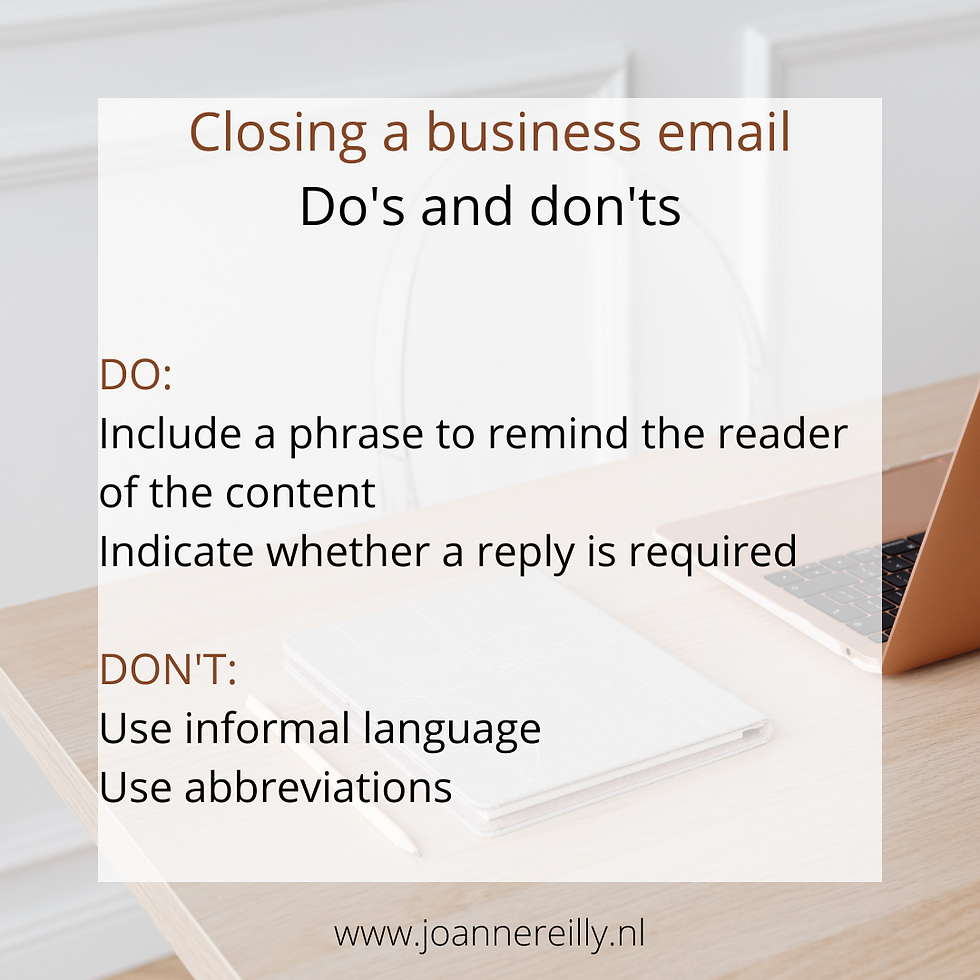Closing a business email in English - do's and don'ts
- Joanne

- Jan 31, 2023
- 2 min read
Updated: Jun 11, 2024
It may sound logical but the end of your email is the last impression that the reader will have of you.
It is therefore a good idea to use a summary sentence to remind the reader of the content and any actions they may need to take.
If a reply is required:
"I look forward to hearing from you."
"Your thoughts on this subject would be appreciated."
"Please can you let me know your availability at your earliest convenience."
"Thank you in advance for your reply."
If a reply is not required you can use a general closing sentence:
"I look forward to working with you on this project."
"I trust this information is clear, but if you have any questions please let me know."
"Your cooperation on this project is appreciated."
Always follow a summary sentence with a closing phrase such as:
"Kind regards."
"Best regards."
"Regards."
"Best wishes"
The closing phrases above can be included in your standard email signature so you don't have to think about what to write each time.
The closing remarks should of course be adapted depending on the content of your email.
It is important to remain formal in a business email all the way through to the end, so:
Don't use abbreviations to close a business email such as "BR" or "Regs".
Don't use informal language in the same way you would reply to a friend, for example, using "Bye", "CU", "Later", "Pub on Saturday?" Even though your colleague may be a friend we need to remember that emails can be forwarded on. You wouldn't want senior management seeing you use this type of language in a business email.





Comments